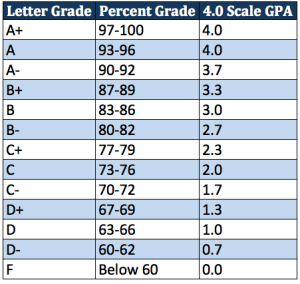
You might ask “What is a senior thesis?” A senior thesis is a project that you take on your senior year of college (hence the word “senior”), where you do independent, original research to make your own claim in a particular field (hence the word “thesis”).
After 18 months of planning and hundreds of emails back and forth with my advisor, I finished a senior thesis. Going through the process literally took blood, sweat, and tears, just kidding. However, the paper is a monster in length compared to anything else I’ve ever written.
The funny part is that I voluntarily put myself through this pain. My school didn’t require a senior thesis to graduate, like Princeton University does.
If it took an extreme amount of effort and my school didn’t require it, then why did I do it? I’ll tell you.
Initial Senior Thesis Motive
Initially, I became determined to complete a senior thesis because it would look good on my resume for grad school admissions or employers.
While it is probably true that a senior thesis improves my resume, this is not a sole—and the best—reason to take on a project this large. For one, plenty of other activities can improve your resume, which don’t take a year or more to complete. Secondly, you will strongly dislike your senior year if the majority of your work is spent on something that you can’t stand doing.
Instead, give more consideration to the points below to help you decide if you should take on a senior thesis.
Better Perspective
Some better reasons (that I luckily discovered later) to take on a senior thesis include: the opportunity to do your own independent research, go intellectually deep about a subject, manage a large project with only one final evaluation, and practice writing a book.
A senior thesis requires research, and developing research skills can help you significantly after graduation. Besides the specific research positions and research involved in some graduate programs, many other positions will value candidates with strong research and critical analysis experience.
If you’re intellectually curious about a topic, then this is another great reason to complete a senior thesis. And it would be almost torture to work on a large project where you can’t stand the material. Plus, during senior year you might have to take other classes that you don’t care for to fulfill graduation requirements and then add the stress of finding your post-graduation plan. That is why you’ll want to somewhat enjoy the senior thesis subject.
Another benefit from completing a senior thesis is that you get experience working independently where you’re only evaluated at the final due date. There aren’t weekly homework, quiz, or test grades to show how you’re doing at a given time. Your advisor will give you feedback, of course, but no grade until the paper is turned in.
This evaluation process creates a different dynamic. It helps you get comfortable to grad school (or law school where your only class grade is the final exam) and work projects (where you don’t receive feedback until it is submitted). Completing a senior thesis requires different pacing and a stronger fight against procrastination.
Lastly, I can see myself writing a book in the future. And although I don’t know all the ins-and-outs of what it takes to finish a book, I think it’s safe to assume that writing a senior thesis is excellent practice for future book writing. Similar to what I’ve read about writing a book, the senior thesis process requires finding material, cutting down to the best and most relevant sections, and then extensive editing and revision.
Now that I’ve written a senior thesis, I prepared myself for if (or when) I write a book in the future.
Should You Take On A Senior Thesis?
If you’re positive that your reasons are legitimate, then you can move on to personal details.
First and foremost, you need to consider your schedule and if you have time for this large project. For example, if senior year you’re taking classes, applying to grad school, and working, then it might not be smart to add another large time-commitment like a thesis. Yet, if you have a regular amount of course credits and want to do something to improve your admissions process, then I recommend a senior thesis. The decision depends on your circumstance.
Secondarily, you also want to consider what professors might advise your thesis and what topics you are curious about. Although these two areas can help you decide, if you can’t think of advisors or topics at the moment, don’t let this deter your decision to take on a senior thesis. It’s not that hard to find an advisor and topic.
Last Words
Completing a senior thesis can serve as the bookend of your college career and a symbol of everything you learned. However, like I said before, it can also be a miserable experience if you do it for the wrong reason or pick an uninteresting topic.
To make a decision, I recommend you spend quality time thinking about it yourself. It is also a good idea to see what your trusted professors, parents, and friends have to say. And this guide to making hard decisions can help.
Then, if you decide to write a senior thesis, I urge you to get started early. You’re most likely going to need all the time you can get.
Readers, comment below on: What is potentially holding you back from taking on a senior thesis? Can you think of any other advantages for doing this large project? What are other questions you have that I can answer?


